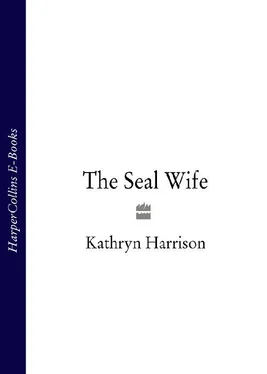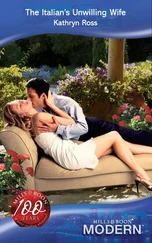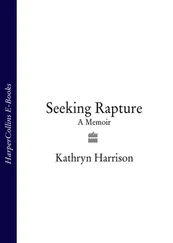“Okay,” he says. “Sorry,” he says. Why doesn’t he learn to resist these gestures she finds condescending?
It’s pretty under the net, the way it makes filmy, indistinct shapes of the chair, the doorway, the squat black stove. The fabric draws halos around lamp and window, and he puts his arm around the woman. With his other hand, he tries to direct her face toward his. But she won’t stay there with him. Instead, she slips out of his arms and pulls the net down, she folds it into something resembling the original bolt.
He moves back to the other room, gets the duck and lays it on the table, sits by the stove, feeling suddenly cold and cheap, apologetic on account of its pedestrian black-and-white feathers. But then she never saw the other one, with the tufted green head, the blood-colored breast.
She undresses before the lamp, and her naked shadow falls across the table, spills into his empty lap.
She picks up the bird, examines it minutely, as she does every meal he brings. There’s no reason to assume she can tell he hasn’t bagged the scaup himself, and yet Bigelow feels sure she knows it isn’t his. Except, he tells himself, that it is. He did buy it, after all. He gave the man what he had left in his pocket, one dime and one nickel.
She cuts the neck to let it bleed; then, without plucking any feathers, she skins it. Does she find the plumage pretty enough to preserve intact? She opens the stomach to find what’s there: the orangy flesh of a bivalve and two small crabs, whole, their legs folded tight. Bigelow finds the sight of them sad somehow, as if rather than having been eaten, they’d been put carefully away, saved for some purpose.
He will think of the crabs later. He’ll try to see them as they were, the pair of them, legs pulled into their sides. He’ll close his eyes to better remember each detail of this evening—the halos drawn by the netting, the smear of blood on the table, the coat of feathers drying on a nail. He’ll wish he’d paid closer attention, as he surely would have had he known to look for auguries. Had he known she would leave him.
As it is, he just sits, shivering by the stove. The scaup has a fishy taste, but he eats it, he holds out his plate for more, the only way he knows to compliment her.
THE DISAPPEARANCE of the Aleut woman grieves him as nothing ever has. “I’m dying,” he tells the face in his shaving mirror. He expects the words to embarrass him, to rouse him from self-pity, but they feel true.
He reminds himself that he has lists of what he’s learned to do without: butter, milk, peach cobbler. Newspapers, paving stones. A decent library, and a place to buy new recordings for his gramophone. A hot bath in his own home instead of a threadbare gray towel and ten shavings of soap for a penny at one of the bathhouses.
And he has always been restrained in the expression of emotion. He didn’t cry when his father died, not even when the undertaker and his boy carried the corpse feetfirst from the bedroom, down the stairs, and into the road. After the funeral, Bigelow’s mother gave him a box of his father’s effects. That was the word she used, effects , and he remembers repeating the two syllables silently to himself, over and over, e-ffects, e-ffects , a compulsive mental throat clearing, but one that produced no result, for he never opened the box. He noted its size, and imagined what a container of its dimensions might hold—eyeglasses, cuff links, the sign, B. GREENE, ATTORNEY AT LAW, that had hung under the bell—but he didn’t open it.
So why, then, does he return to the woman’s abandoned house almost daily, driven to reconsider the two vacant rooms, the window’s empty pane of light as it moves across the floor and onto the opposite wall?
Sunday morning hours that he once squandered in church, crammed into a pew between mother and sister, grudgingly dropping nickels into the collection plate, he spends in rooms she has consecrated, a word that surprises him when it comes into his head. Consecrated . After all, he hasn’t been to a Sunday service in ten years. But how else to describe what he feels as he walks through her house, around and around, reeling with loneliness?
She chinked between the shrinking, warped boards of the house with scraps of leather, moss, paper—whatever came to hand—and in her absence these have fallen out and cracks have appeared, admitting air, light. He tries to restuff them, but the dried moss crumbles at his touch, the bits of leather and paper slip straight through and outside, then blow away. He presses his eye to the crack, watching the wind tease them over the packed dirt.
JULY 4, the town explodes, bunting and baseball and smuggled bottles of beer. Despite the fact that the Engineering Commission has designated the town as dry—there are no legal intoxicants in Anchorage, and anyone caught selling contraband beer or whiskey within the town site will forfeit his or her claim to a plot of land—alcohol flows through its streets from the Line, as the straggling track of whorehouses southeast of the site is called. The madams use their connections to buy beer by the crate straight off the dock, packed in boxes labeled BEANS or MOLASSES or LAUNDRY SOAP; and stills abound in the uncut woods. Women who sell their favors sell bootleg, too, either as an aphrodisiac to be consumed on the premises, or as a nightcap, to carry home in a hair-oil bottle.
Конец ознакомительного фрагмента.
Текст предоставлен ООО «ЛитРес».
Прочитайте эту книгу целиком, купив полную легальную версию на ЛитРес.
Безопасно оплатить книгу можно банковской картой Visa, MasterCard, Maestro, со счета мобильного телефона, с платежного терминала, в салоне МТС или Связной, через PayPal, WebMoney, Яндекс.Деньги, QIWI Кошелек, бонусными картами или другим удобным Вам способом.












